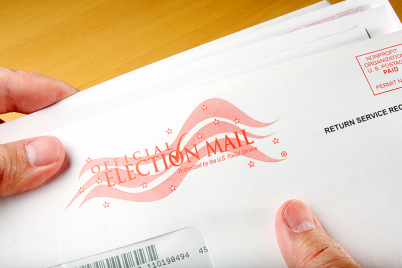Vaccination information for parents
Vaccines are among the safest and most cost-effective ways to prevent disease and keep children healthy. As a new school year approaches, parents are encouraged to review their children’s immunization records.
Florida requires documentation of age-appropriate vaccinations for all school age children, pre-kindergarten through 12th-grade. Children entering kindergarten and seventh grade are typically due for vaccines and must meet the legal requirement for school entry. Be sure to turn in the immunization form to your child’s school. According to the law, kindergarten and seventh-grade students are not allowed to attend class if schools do not have proper documentation of immunization.
Vaccines help children develop immunity to infectious diseases such as measles, chicken pox, polio and whooping cough. Vaccines benefit individual students and other members of the community that are unable to be vaccinated.
For immunization information, contact your child’s physician or the Florida Department of Health in Pinellas at 727-824-6900. The DOH provides free immunizations at health centers throughout the county. For any additional questions on school health, please call Pinellas County Schools Health Services department at 727-588-6320 or visit the Health Services page of the district’s website.
Special Safety Protocols
If a student or teacher is impacted by COVID-19, information will be shared with impacted families and staff in several ways. A Department of Health letter will be emailed to families using the school district’s automated communication system. Letters will also be sent home with students, and calls will be made as needed to those with direct contact with individuals impacted by COVID-19.
Tips from the School Nurse
There are many things that parents and students can do to stay healthy throughout the school year. Here are some tips to prevent the spread of germs:
Masks: All staff members and students will be required to wear masks while on a school bus or inside school facilities. The district will issue five cloth masks to each student and employee at the beginning of the school year. Schools will also supply an extra mask for students if they forget theirs. Mask breaks will be provided to give students and teachers an opportunity to take their masks off for short periods. When taking mask breaks, students and staff must ensure they are at a safe social distance from others or are outside in the fresh air.
Wash your hands often: Frequent hand washing is one of the simplest and most effective ways to stay healthy in school and at home. Remind children to wash their hands before eating and after using the bathroom, blowing their noses or playing outside. Sing the “Happy Birthday” song twice while you scrub! Since hands transmit germs, make sure to keep your hands away from your eyes, nose and mouth.
Cover your mouth and nose when you cough or sneeze: Children should cough or sneeze into the crook of their elbows to prevent the spread of infectious droplets through the air.
Don’t share water bottles, food or other personal items: Remind children that any items that touch their mouths should not be shared with others.
Keep children home from school when they are ill: Never send children to school if they have a fever or diarrhea or are nauseated or vomiting. Children who lose their appetite, are clingy or lethargic, complain of pain or just don’t seem to be acting like themselves should also take a sick day.
Eat a healthy diet, get plenty of sleep and stay current on recommended and required vaccinations, including a yearly flu vaccine: To prevent spreading illness at home, use these same tips for all members of the family!









